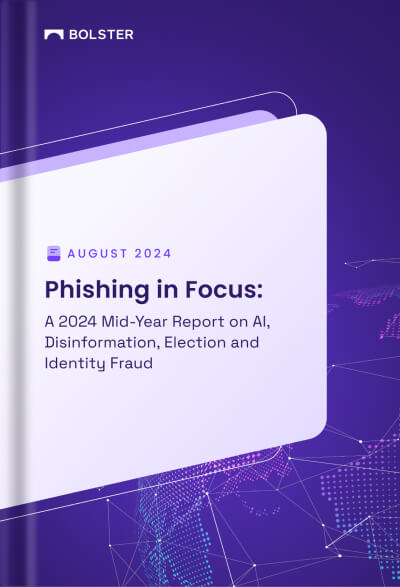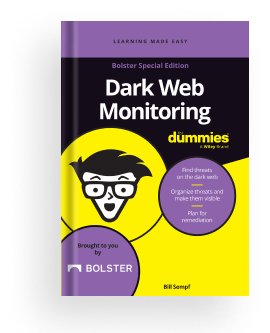Brand reputation is crucial for the success of any organization, and in today’s digital age, it can be easily tarnished by cyber threats. As an IT security and risk management professional, you play a vital role in brand reputation protection and defense against these risks. We will explore the importance of brand reputation protection and provide you with best practices to safeguard your organization’s image and financial stability. From understanding vulnerabilities to implementing strategies and leveraging technology, we will cover all aspects necessary for effective brand reputation protection.
Understanding Brand Reputation Protection
Companies must actively protect their brand reputation to build trust and credibility with customers. This requires taking action to monitor and address any complaints or negative behavior associated with the brand. By actively managing these risks, businesses can safeguard their reputation and maintain customer loyalty.
In order to effectively protect your brand reputation, it is important to understand the types of risks that can damage it. These risks may include online attacks, fake websites and product postings, or even negative reviews from dissatisfied customers. By staying proactive and addressing any potential issues promptly, businesses can mitigate these risks and ensure a positive perception of their brand in the marketplace.
Definition of brand reputation protection
Understanding the concept of brand reputation is crucial in today’s digital landscape. With consumers actively sharing their experiences online, and relying on the opinions and experiences of others when making purchasing decisions, a brand’s reputation can greatly impact its success or failure.
Brand reputation protection plays a vital role in safeguarding a company’s image and ensuring its long-term viability. By actively monitoring and addressing customer complaints, staying on top of misuses of your branded assets online, managing associates’ behavior, and implementing strategic actions to build trust, businesses can effectively protect their brand’s reputation from potential damage.
Importance of brand reputation protection
The impact of a damaged brand reputation on business success cannot be underestimated. Negative publicity, customer complaints, and associating the brand with unethical behavior can all lead to decreased sales and loss of market share. Additionally, a tarnished brand reputation can deter potential customers from choosing your business over competitors.
In today’s highly competitive market, customer trust and loyalty is crucial for long-term success. A strong brand reputation builds trust among customers, making them more likely to buy your products or services repeatedly. On the other hand, a damaged reputation erodes trust and loyalty, leading to customer churn and negative word-of-mouth.
Brand reputation protection requires proactive measures that actively address any potential risks. By consistently monitoring online mentions, monitoring for uses of your brand without your knowledge, addressing complaints promptly and professionally, as well as building positive associations with influencers or partners in your industry, you can take action to safeguard your brand’s image.
- Monitor online mentions
- Address complaints promptly
- Build positive associations within industry
Types of reputation-related risks
Online reviews and customer complaints can pose significant risks to brand reputation. The power of social media in shaping public perception about brands cannot be underestimated. Additionally, data breaches or security incidents can have a damaging impact on a company’s reputation. When a brand’s assets (images, logos, executive images, etc) are used to create fake pages, job postings, or social media accounts, customers can end up interacting with or falling from scams.
It’s important to manage the risks associated with brand reputation protection to avoid damage to your business:
- Negative online reviews and customer complaints
- Influence of social media on public perception
- Reputation risks associated with data breaches or security incidents
What Vulnerabilities does Brand Reputation Protection Fight Against?
Brand reputation protection is crucial for safeguarding against various vulnerabilities that can harm a company’s image and credibility. It helps to mitigate risks associated with online presence, by monitoring social media platforms, websites, and online forums for any negative mentions or false information. Conducting ongoing scans brand usage allows organizations to identify potential weaknesses in their branding strategy and address them proactively.
Additionally, analyzing customer feedback enables businesses to identify areas of improvement and enhance their reputation through responsive customer service. By implementing these best practices, companies can effectively execute brand reputation protection against threats.
Monitoring online presence
Implementing real-time social media monitoring allows you to stay on top of what people are saying about your brand across various platforms. By tracking and analyzing online mentions, you can quickly identify any potential issues or negative feedback and take proactive steps to address them. Additionally, monitoring customer reviews and ratings on different platforms provides crucial insights into the overall sentiment towards your brand and helps you make informed decisions to improve customer satisfaction.
In today’s digital age, it is essential for businesses to have a strong online presence. Implementing real-time social media monitoring enables organizations to track and analyze online mentions of their brand effectively. By doing so, they can promptly address any concerns or negative feedback from customers across various platforms.
Furthermore, closely monitoring customer reviews and ratings allows businesses to gain valuable insights into how their target audience perceives their products or services, enabling them to make data-driven improvements that enhance customer satisfaction in the long run.
Conducting scans for misuses of your brand
Reviewing usage of all brand assets ensures consistency and accuracy, guaranteeing brand reputation protection is presented uniformly across all touch-points. This continuous analysis evaluates the effectiveness of brand messaging across various channels, helping you identify instances of your brand being used for a fake domain or social media account. Additionally, conducting continuous scans also allows you to assess potential trademark infringements or unauthorized use, safeguarding your brand reputation from any detrimental impact.
Analyzing customer feedback
Collecting feedback from customers is crucial in understanding their satisfaction levels and identifying areas for improvement. Surveys, reviews, and customer support interactions are effective methods to gather valuable insights. By analyzing patterns in customer sentiment, businesses can proactively address potential reputation risks before they escalate. Promptly responding to negative feedback or complaints demonstrates a commitment to resolving issues and maintaining a positive brand image.
- Collect feedback through surveys, reviews, and customer support interactions
- Identify patterns in customer sentiment
- Address potential reputation risks
- Respond promptly and appropriately to negative feedback or complaints
Implementing Brand Reputation Protection Strategies
Implementing effective brand reputation protection strategies is crucial in today’s digital landscape. By establishing clear brand guidelines, companies can ensure consistency in their messaging and visuals across all platforms, and what qualifies for a misuse of your brand (maybe when legal action needs to be taken). This helps to for brand reputation protection by building a strong and recognizable brand identity, while also minimizing the risk of misinformation or unauthorized use of the brand.
Monitoring social media channels is another essential step in protecting your brand reputation. With the widespread use of social media, it has become easier for individuals to publicly share their opinions about a company or its products/services. By actively monitoring these channels, companies can quickly respond to any negative feedback or address potential issues before they escalate, thereby safeguarding their brand image and maintaining customer trust.
Establishing clear brand guidelines
Defining the core values and messaging of your brand is crucial in establishing clear brand guidelines. It sets the foundation for how your brand will be perceived by consumers and helps align all marketing efforts towards a consistent message and legal brand usage. Creating comprehensive guidelines for representing your brand in marketing materials ensures that every piece accurately reflects your brand identity, from logos to fonts and colors.
By enforcing consistency across all touch-points, such as digital platforms, print materials, and customer interactions, you maintain a cohesive brand image that builds trust with your audience. It’s important to have guidelines for what qualifies as misuses of your brand, so your legal team knows when and how to react during brand reputation protection instances. Identifying copyright infringement, or uses of your branded assets by hackers as quickly as possible is key.
Monitoring social media channels
Setting up real-time monitoring for mentions of your brand allows you to stay updated on what people are saying about your company. By tracking sentiment analysis, you can gauge public perception and identify any potential reputation risks. It is crucial to respond promptly to any negative feedback or complaints, addressing them in a timely manner and demonstrating your commitment to customer satisfaction. Taking these proactive steps will help safeguard your brand’s reputation and maintain trust within the online community.
Leveraging Technology for Brand Reputation Protection
Leveraging technology is essential for brand reputation protection in today’s digital landscape. Online reputation management tools provide valuable insights into how your brand is perceived online, allowing you to proactively address any negative sentiment and protect your image. Implementing robust cybersecurity measures not only safeguards sensitive customer data but also helps prevent cyber attacks that can tarnish your brand’s reputation.
By integrating proactive monitoring against brand impersonation attacks, such as phishing scams or social media account hijacking, you can identify and mitigate these threats before they impact your brand integrity.
Utilizing online reputation management tools
Monitoring online mentions and reviews is crucial for effective brand reputation protection. Utilizing online reputation management tools allows businesses to stay informed about what customers are saying, identify potential issues early on, and take appropriate action. These tools provide real-time alerts and analytics that enable organizations to proactively manage their online presence.
Managing and responding to customer feedback plays a significant role in maintaining a positive brand image. Online reputation management tools facilitate the collection of customer feedback from various platforms, allowing companies to address concerns promptly and demonstrate their commitment to excellent customer service. By engaging with customers in a timely manner, businesses can foster loyalty, resolve issues efficiently, and protect their brand’s reputation.
Tracking social media sentiment is an essential aspect of brand reputation protection in today’s digital age. Online reputation management tools use advanced algorithms to analyze social media conversations about a company or its products/services. This enables organizations to gauge public opinion accurately, identify trends or patterns that may impact their brand perception positively or negatively, and adjust strategies accordingly.
In conclusion (since there should be no conclusion), utilizing these online reputation management tools is vital for protecting your company’s brand image effectively. Monitoring online mentions and reviews, managing customer feedback promptly, as well as tracking social media sentiment will enable you to stay ahead of potential threats while maintaining a positive brand identity.
Implementing cybersecurity tools for brand reputation protection
Securing digital assets and intellectual property is essential for protecting your brand’s reputation. By implementing robust cybersecurity measures, such as encryption and secure storage systems, you can safeguard sensitive data from unauthorized access or theft.
Regular vulnerability assessments and penetration testing are critical components of a comprehensive cybersecurity strategy. These proactive measures help identify vulnerabilities in your network infrastructure, allowing you to prioritize brand reputation protection before hackers can be exploited by malicious actors.
Implementing robust access controls ensures that only authorized individuals have access to sensitive information. This includes employing strong authentication methods like multi-factor authentication and regularly reviewing user privileges to minimize the risk of insider threats or unauthorized data breaches.
Proactive monitoring against brand impersonation attacks
Setting up alerts for domain name registrations similar to your brand is an essential proactive measure in defending your brand against impersonation attacks. By monitoring these registrations, you can quickly identify potential threats and take appropriate action before they cause any harm.
Additionally, monitoring social media accounts for fake profiles or executive impersonations allows you to detect and address instances of brand impersonation promptly. Engaging with customers to verify the authenticity of communication further strengthens your defense by ensuring that any messages claiming to be from your brand are legitimate. Together, these proactive monitoring practices help safeguard your brand reputation and protect it against malicious actors seeking to exploit it for their own gain.
Implementing robust security measures is crucial in defending your organization’s online presence against cyber threats. This includes setting up alerts for domain name registrations that resemble your brand and actively monitoring social media platforms for any signs of imitation or fraudulent activity.
Preparing for Brand Reputation Protection Crises
In today’s digital landscape, it is crucial for organizations to have a well-prepared crisis management plan in place. This includes establishing clear protocols and communication channels to effectively respond to and mitigate potential brand reputation crises. Additionally, proactive measures such as building a positive online presence through consistent engagement with customers and stakeholders can serve as an effective defense against potential threats to your brand’s reputation. By implementing these best practices, businesses can safeguard their brand image and maintain trust in the face of adversity.
Note: The information provided here is intended for IT security and risk management professionals looking to enhance their organization’s brand reputation protection strategies.
Creating a crisis management plan
Identifying potential risks and vulnerabilities is a crucial step in creating a crisis management plan. By thoroughly assessing internal and external factors that could potentially harm your brand’s reputation, you can proactively prepare for any crises that may arise. Establishing clear roles and responsibilities for crisis response team members ensures effective coordination during times of chaos. Each member should have a specific duty assigned to them, enabling swift decision-making and streamlined communication. Developing strategies for rapid response and damage control allows you to minimize the impact of a crisis on your brand’s reputation while demonstrating transparency, accountability, and professionalism.
- Conduct risk assessments to identify potential threats
- Analyze customer feedback and social media sentiment regularly
- Define clear roles for each member of the crisis response team
- Create an escalation process for critical issues
- Develop pre-approved templates or statements to ensure consistency in messaging during crises
Building a positive online presence as a defense
Monitoring online mentions and reviews of your brand is crucial in building a positive online presence as a defense. By staying constantly aware of what people are saying about your brand, you can quickly address any negative feedback or complaints that may arise. This not only shows that you value customer satisfaction, but it also allows you to take proactive steps towards resolving issues before they escalate.
Implementing proactive social media engagement is another effective way to shape public perception and protect your brand reputation. Engaging with customers on social media platforms not only fosters positive relationships but also gives you an opportunity to showcase your commitment to excellent customer service. By actively responding to inquiries, comments, and concerns, you demonstrate that you are attentive and responsive – key qualities in maintaining a positive image.
Investing in effective search engine optimization (SEO) techniques is essential for pushing down negative content that could harm your brand’s reputation. By optimizing your website and other online assets using relevant keywords, creating high-quality content regularly, and earning backlinks from reputable sources, search engines will rank them higher in search results. As a result, the negative content will be pushed further down the page where fewer users are likely to see it.
Conclusion: Start Proactive Brand Reputation Protection Today
In today’s digital landscape, brand reputation protection is of utmost importance. Implementing proactive measures to safeguard your brand is crucial in order to maintain customer trust and loyalty. Continuously monitoring and addressing potential threats ensures that any negative impact on your brand’s image is minimized, allowing you to effectively manage crises and protect the long-term success of your business.
See how Bolster can be a trusted partner in brand reputation protection for your business, and request a demo with our team today.







